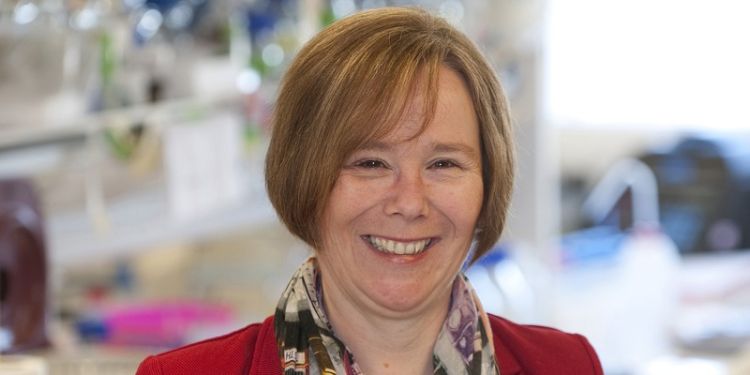Professor Sheena Radford elected to the National Academy of Sciences

Membership of the Academy is among the highest honours in science.
Multi-award winner Dr Sheena Radford, Professor of Biophysics in the Faculty of Biological Sciences and the Astbury Centre for Structural Molecular Biology, has been elected as an international member of the National Academy of Sciences (NAS).
I am humbled, honoured and delighted to elected as an International member of the National Academy of Sciences. Science is an international pursuit that brings people together from across the globe to discover new knowledge about the world we live in. I look forward to playing my part in helping deliver the aims of the National Academy of Sciences and flying the Leeds flag of excellence everywhere I go
The National Academy of Sciences (NAS) is a private, non-profit society of distinguished scholars based in the United States of America.
Established by an Act of Congress, and signed by President Abraham Lincoln in 1863, the NAS is charged with providing independent, objective advice to the US on matters related to science and technology.
The new members, which were announced on Tuesday 30th April, are recognised for their ‘distinguished and continuing achievements in original research’.
Those elected bring the total number of active members to 2,617 and the total number of international members to 537.
A ‘biochemist of distinction’
Professor Radford joined University of Leeds in 1995 after completing her PhD in Biochemistry at the University of Cambridge and postdoctoral research in Oxford as a Royal Society University Research Fellow.
She has since taken several leadership positions at Leeds including being a founding member and Director of the Astbury Centre for Structural Molecular Biology, as well as serving on numerous journal editorial boards and major research funding panels.
The originality of her work and contributions to science and the scientific community has earned Professor Radford multiple accolades, including a Most Excellent Order of the British Empire (OBE) and most recently the Centenary Award from the Biochemical Society.
Her most recent research focuses on how and why proteins form amyloid, clumps of misfolded proteins that are associated with a range of diseases, such as Alzheimer’s disease, Parkinson’s disease, and Type 2 Diabetes and how bacteria fold proteins to create their cell walls that makes them resistance to antibiotics.




